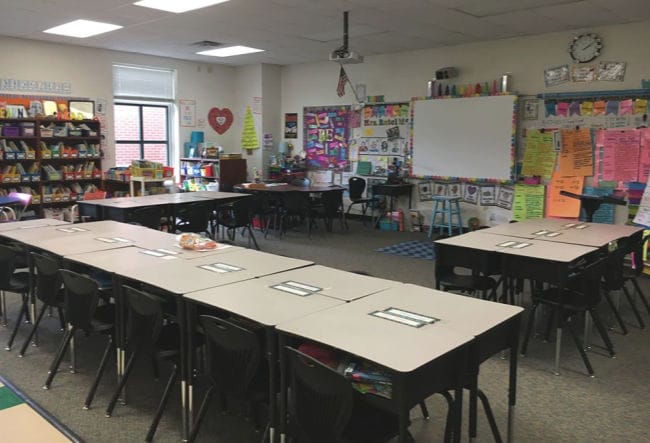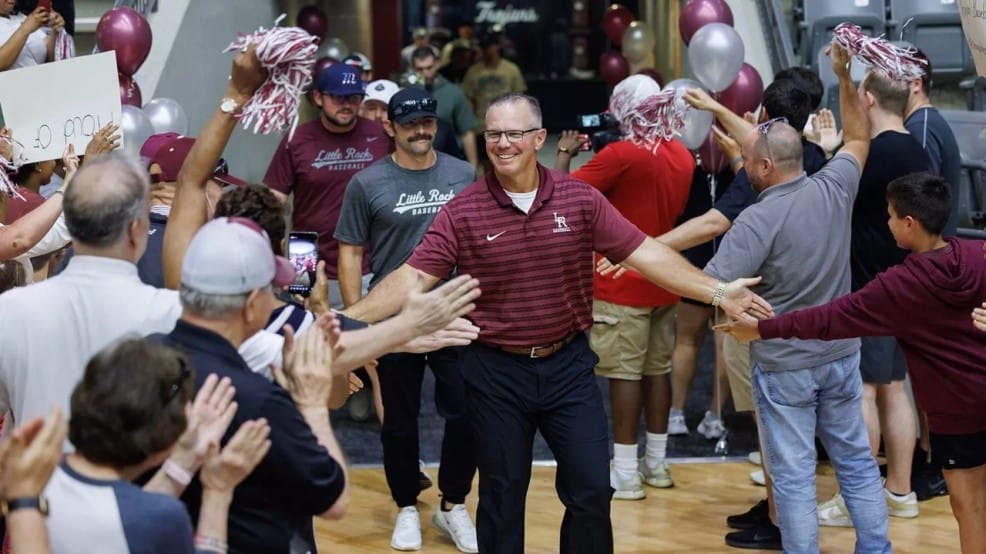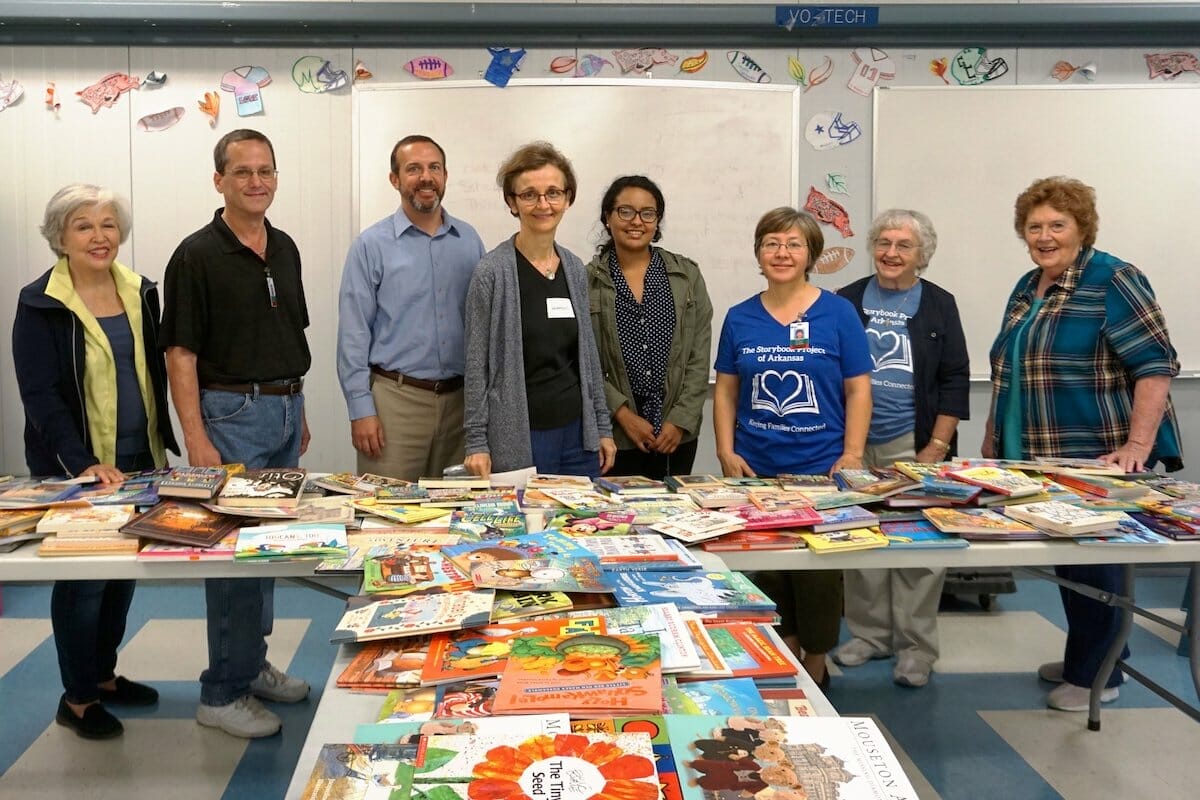

Uh oh...
It appears that you're using a severely outdated version of Safari on Windows. Many features won't work correctly, and functionality can't be guaranteed. Please try viewing this website in Edge, Mozilla, Chrome, or another modern browser. Sorry for any inconvenience this may have caused!
Read More about this safari issue.

A positive note found in the recent upheaval of our lives comes in the stories of dedicated and essential workers in all kinds of jobs, and the creativity of artists making the best of a bad situation. The thread that ties them together? Presumably, they all had teachers. In the last few weeks, Arkansas teachers and administrators arranged multiple virtual meetings and uploaded digital resources. They post on social media, send newsletters on group apps, and check on parents however they can. Their staunch devotion is evident in how much they want to support parents who are teaching children at home.

Schools Supporting Parents
My children’s Springdale elementary school principal, Andi Acuff, said it took all available staff to organize and assemble the “Alternative Methods of Instruction” (AMI) packets that went home with students the weekend before schools closed. With original packets created at the district level, the teachers at the school worked to personalize the resources with materials they knew students would need. The Friday before Arkansas schools closed to on-site instruction, they sent home over 700 packets.
Acuff is proud of her staff’s dedication. She also acknowledges that not knowing or seeing students and families is difficult, and she doesn’t want them to feel alone.
“When we see our students each day we can make sure that their physical, nutritional, academic and emotional needs are being met. If they are struggling in any one of these areas, we know it and can help. We want our families to know that we are here to support them even if the school building is closed.”
My fifth-grade son’s teacher, Hannah Sitek, added multiplication sheets for him to work on along with assignments in core subjects, physical education, art and music. She misses greeting him and his peers each day. Like her colleagues at the school, she checks in regularly with other families and us.
Maribel Childress is an assistant superintendent with the Springdale School District. With ten days of alternative instruction already in place, the district pulled together a team to review the packets as the closing of schools appeared imminent. That, plus a week of spring break, allowed time for the district to improve the model and teachers to work on their skills in delivering instruction remotely.
Childress hopes families will be able to spend quality time together in new ways and partner with teachers in such a way that the relationships will strengthen and benefit children’s education.
“I hope teachers and all educational leaders will prioritize their energies on the child first and the content second. I hope teachers will develop new and innovative skills for personalizing education for their students. And I hope families and educators will stay safe and make healthy decisions so we can return to school as soon as possible.”

Virtual Delivery of Education: The New Normal
For the Batesville, Arkansas school district, Richie Kohl teaches high school robotics and elementary gifted and talented classes. He and his students are accustomed to using Google classroom, which helped ease the transition to online learning. To assist students who could only connect with a parent’s phone, he set up a private group on Facebook. Although he has already been able to guide students to resources for enrichment, it’s important to him that he focus on supporting their learning without adding more work to a stressful situation.
“Mostly, I want parents to know that it’s OK if everything doesn’t get done. We’re just keeping it simple and trying to keep a relevant focus without creating an unattainable workload for students.”
Rachel Wilbanks is working double duty as a student teacher and parent in the Greenwood School District. Her three children in grades Kindergarten through sixth moved from a simple first week to several meetings on Google classroom. She has stayed in contact with their teachers via email and group apps like Remind. She knows this method using alternative instruction is different for young children since their learning is more hands-on and involves extra help from their teachers.
Much of the curriculum for the high school students Wilbanks teaches is already based in Google classroom; most of the modifications simply involve transferring assignments and recording lectures. She can give high school students serious assignments and expect them to complete each one. Wilbanks feels equipped to do virtual teaching, especially because of her mentor teacher’s elaborate organizations of materials online. But she knows not everyone feels prepared for the situation. She wants parents to be patient with themselves.
“This is a stressful time – the anxiety, job losses, the media and the lack of personal connection. The alternative instruction is important, but please use it to try and keep some type of structure so it can be a good distraction for your kids.”
Springdale kindergarten teacher Rachel Northup also acknowledges the enormous task parents have been handed. She has worked in education for 21 years. She misses her job, her school, and her students. Northup has connected with them through a group app, text, email and phone calls. And at the time we talked, she was preparing for her first virtual meeting with her class. She and other teachers in her school use translators to communicate with families who speak Spanish or Marshallese. She wants parents to know that they are doing an awesome job.
“The support, attention and dedication they are showing their children are amazing.”

Photo of the classroom is courtesy of Sally Ratcliff.
An Education in Life Skills
Most of Teresa Harrison’s 150 middle school science students have consistently turned in assigned work. She’s made 60 phone calls to check up on those who haven’t. In her third decade of teaching, Harrison has been thrown into unfamiliar territory with a crash course in technology so she can effectively use online tools.
“This situation is new for teachers. Like parents, many of us haven’t done this before. I’m learning a new way to work right along with my students.”
Her school checked out over 300 Chromebooks to students. For a small percentage who don’t have internet, Harrison pulled resources they could access using a phone. This week, her classes are researching a project and slide presentation on the ecosystem.
Along with their instruction across the curriculum, her hope for these students is that they stay safe, healthy, and gain a different kind of education.
“I want them to continue to learn academics, but I also hope they learn to monitor their work and manage their time. A lot of them are home with younger siblings and while parents are at jobs. Right now, they have an opportunity to learn the life skills of working in and with a difficult situation.”
Join the Conversation
Leave a Comment
One response to “Teaching from a Distance: Arkansas Teachers Talk AMI”
 Leave a Reply
Leave a Reply
We do the work.
You check your email.
Sign up for our weekly e-news.
Get stories sent straight to your inbox!











 Leave a Reply
Leave a Reply
[…] John Lowry played with his Snap Circuits and announced his progress on tasks. “I have one more AMI thing to do, but apparently procrastination is good. Dad showed us a TED Talk about it, so I’m […]